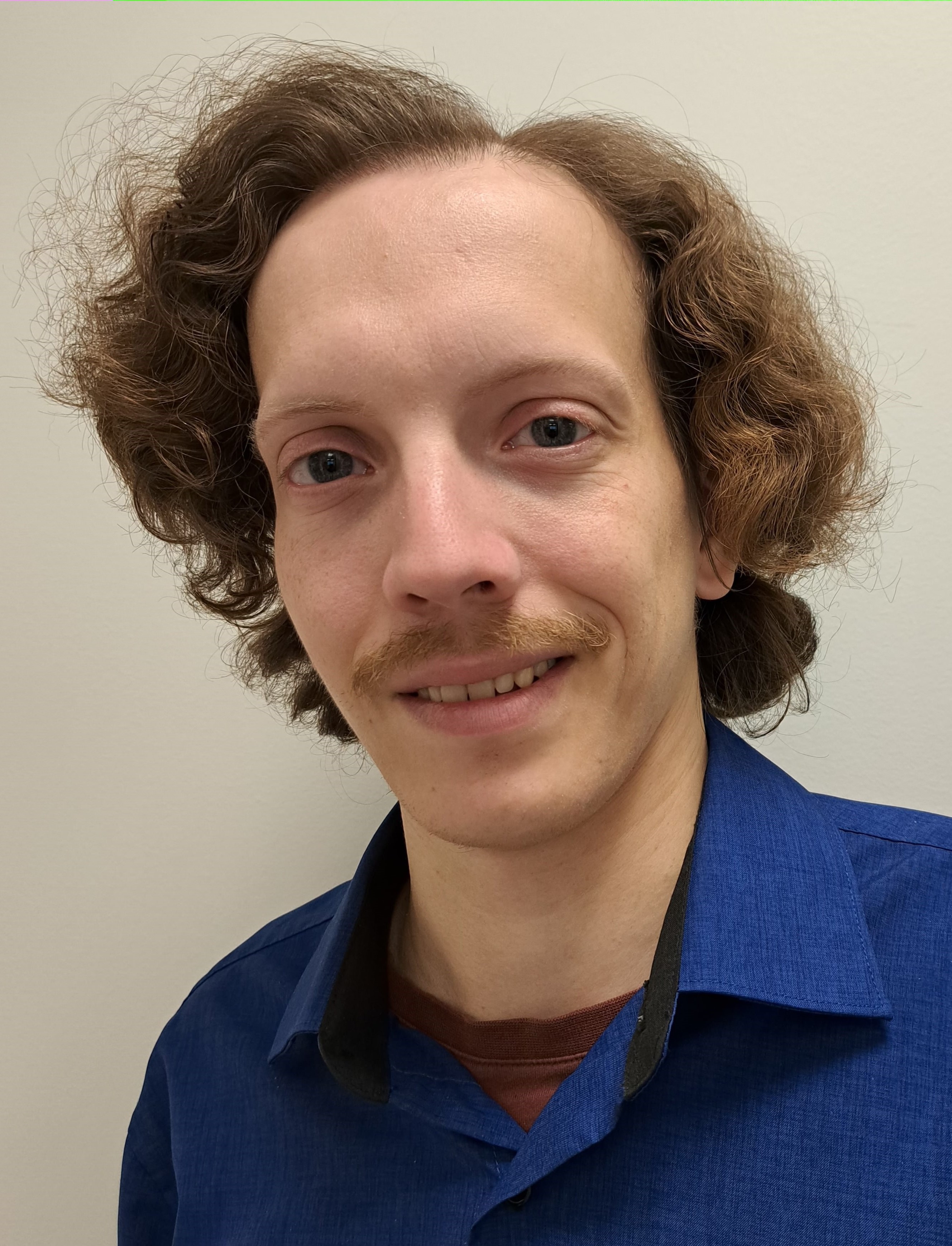NEW!
Developing Country Early Career Researcher Award 2025
The IAG is launching a NEW Early Career Scientist Award specifically focused on supporting scientists from developing countries. This award seeks to:
- Provide opportunities for scientists from under-represented nations to establish, develop and build relationships in the greater scientific community
- Enable them to gain access to state-of-the-art laboratory facilities and provide them with a better understanding of analytical instrumentation and geochemical applications.
- Promote the IAG’s mission and support geochemical and environmental analysis in developing countries.
The Award will provide mobility funding to enable the awardee to participate in such activities as: collaborative science, training, work shadowing or attendance at workshops and seminars at a regional or international level. In doing so, the applicant will have the opportunity to learn about new methodologies and techniques relevant to geochemical and environmental analysis.
Candidates must meet the following criteria:
- Currently studying for a Master or Doctorate degree, or be within 5 years of receiving such a degree; and
- Author of at least one scientific product, presentation or peer-reviewed published paper, having conducted most of the research for it.
The Developing Country Early Career Scientists Award consists of an award of up to 6,000 USD based on the proposed mobility activity, with additional travel support of up to 3,000 USD, plus an 18-month membership of the IAG.
Applicants’ research interests should be in line with the IAG’s aims and objectives (see Home page). The application will include: a summary of the proposed work programme; the purpose and objectives of the proposed mobility activities; publications, reports or products from work relevant to the application; a letter of recommendation from an established researcher in the field of geosciences; and a letter of invitation from the host institution (where relevant).
An application form can be downloaded here. The closing date for applications has been extended to 31 January 2025.
Winner of the 2025 IAG Early Career Researcher Award
We are proud to announce that the winner of the 2025 Award is Xiuhong Liao from the China University of Geosciences (CUG). She will be presenting her research at the 2025 Goldschmidt conference to be held in Prague, Czech Republic, 6-11 July 2025.
 Xiuhong Liao is an Associate Professor at the Gemmological Institute, CUG, in Wuhan. Her research focuses on advancing analytical methods and developing reference materials for isotopic and elemental analysis in geochemistry and gemmology using LA-(MC-)ICP-MS. During her PhD (2017–2023) at the State Key Laboratory of Geological Processes and Mineral Resources, CUG, she developed a laser ablation solution sampling method for (MC-)ICP-MS.1,2,3,4 This technique overcomes the limitations of traditional nebulisation by improving analyte transport, reducing interferences and minimizing sample consumption. The method has been successfully applied to a range of sample types, including geological rocks, wine, porewater and boron isotopic analysis. Since completing her PhD, she has focused on the development of reference materials for isotopic and elemental analysis by LA-(MC-)ICP-MS in gemmology,5 including the development of tourmaline megacrysts for boron isotopic analysis and pressed pearl powder pellets for Sr isotope analysis. In her spare time, Xiuhong enjoys jogging, yoga and city walking.
Xiuhong Liao is an Associate Professor at the Gemmological Institute, CUG, in Wuhan. Her research focuses on advancing analytical methods and developing reference materials for isotopic and elemental analysis in geochemistry and gemmology using LA-(MC-)ICP-MS. During her PhD (2017–2023) at the State Key Laboratory of Geological Processes and Mineral Resources, CUG, she developed a laser ablation solution sampling method for (MC-)ICP-MS.1,2,3,4 This technique overcomes the limitations of traditional nebulisation by improving analyte transport, reducing interferences and minimizing sample consumption. The method has been successfully applied to a range of sample types, including geological rocks, wine, porewater and boron isotopic analysis. Since completing her PhD, she has focused on the development of reference materials for isotopic and elemental analysis by LA-(MC-)ICP-MS in gemmology,5 including the development of tourmaline megacrysts for boron isotopic analysis and pressed pearl powder pellets for Sr isotope analysis. In her spare time, Xiuhong enjoys jogging, yoga and city walking.
1 Xiuhong Liao, Zhaochu Hu, Tao Luo, Wen Zhang, Yongsheng Liu, Keqing Zong, Lian Zhou and Junfeng Zhang. Determination of major and trace elements in geological samples by laser ablation solution sampling-inductively coupled plasma mass spectrometry. Journal of Analytical Atomic Spectrometry, 2019, 34, 1126–1134.
2 Xiuhong Liao, Tao Luo, Shenghua Zhang, Wen Zhang, Keqing Zong, Yongsheng Liu and Zhaochu Hu. Direct and rapid multi-element analysis of wine samples in their natural liquid state by laser ablation ICPMS. Journal of Analytical Atomic Spectrometry, 2020, 35, 1071–1079.
3 Xiuhong Liao, Zhaochu Hu, Wen Zhang, Yantong Feng, Tao Luo, Zaicong Wang, Ming Li, Keqing Zong, Yongsheng Liu and Shenghong Hu. Isotopic analysis by laser ablation solution sampling MC-ICP-MS — An example of boron. Analytical Chemistry, 2022, 94, 1286–1293.
4 Xiuhong Liao, Wen Zhang, Tao Yang, Zhaochu Hu, Tao Luo, Xianli Zeng and Lian Zhou. Accurate determination of rare earth elements in small volumes of porewater from marine sediments by laser ablation solution sampling ICP-MS. Journal of Analytical Atomic Spectrometry, 2023, 38, 156–165.
5 Xiuhong Liao, Tao Chen, Tao Luo, Yue Cai, Wen Zhang, Zuowei Yin and Zhaochu Hu. Tourmaline megacryst reference materials for high precision in situ boron isotopic and elemental analysis by LA-MC-ICP-MS. Geostandards and Geoanalytical Research, 2024. https://doi.org/10.1111/ggr.12594
Winners of the IAG Early Career Researcher 2024 Award
The winners of the 2024 Award were Birk Härtel (University of Calgary, Canada) and Shiqiang Huang (Colorado School of Mines, USA). They presented their research at the 2024 Goldschmidt conference 18-23 August held in Chicago, USA. During the conference they also received their IAG awards.
 Shiqiang Huang manages the LA-ICP-MS/MS lab at Colorado School of Mines (CSM), USA, specialising in LA-ICP-MS (single and triple quadrupole) techniques and their applications in economic geology. During his PhD (2019-2022) at CSM, Shiqiang focused on in situ Rb-Sr dating of micas1 and the influence of organic matter on the Re-Os dating of pyrite2. After completing his PhD, he has been engaged in the U-Pb dating of zircon, garnet, and cassiterite, plus trace element analysis and mapping of various minerals and glasses. In addition, he has started to improve the U-Pb dating method for wolframite and scheelite. He is also working on the magma fertility indicators of the Las Bambas deposit, Peru, which involves extensive LA-ICP-MS analysis. In his spare time, Shiqiang enjoys outdoor sports including hiking, camping, skiing, mountain biking and rock climbing.
Shiqiang Huang manages the LA-ICP-MS/MS lab at Colorado School of Mines (CSM), USA, specialising in LA-ICP-MS (single and triple quadrupole) techniques and their applications in economic geology. During his PhD (2019-2022) at CSM, Shiqiang focused on in situ Rb-Sr dating of micas1 and the influence of organic matter on the Re-Os dating of pyrite2. After completing his PhD, he has been engaged in the U-Pb dating of zircon, garnet, and cassiterite, plus trace element analysis and mapping of various minerals and glasses. In addition, he has started to improve the U-Pb dating method for wolframite and scheelite. He is also working on the magma fertility indicators of the Las Bambas deposit, Peru, which involves extensive LA-ICP-MS analysis. In his spare time, Shiqiang enjoys outdoor sports including hiking, camping, skiing, mountain biking and rock climbing.
1Huang, S., Chang, Z., Liu, K., and Garbe‐Schönberg, D., 2023, Optimisation of LA‐ICP‐MS/MS Rb‐Sr dating of micas with non‐matrix‐matched reference materials: Geostandards Geoanalytical Research, v. 47, p. 725-747.
2Huang, S., Song, Y., Zhou, L., Leach, D. L., Chang, Z., and Hou, Z., 2022, Influence of organic matter on Re-Os dating of sulfides: insights from the giant Jinding sediment-hosted Zn-Pb deposit, China: Economic Geology, v. 117, p. 737-745.
 Birk Härtel is a postdoctoral researcher at the Department of Earth, Energy and Environment at the University of Calgary (Canada). His research focuses on method development and data analysis in low-temperature thermochronology. He received his PhD degree at Freiberg University of Mining and Technology (Germany), where he worked on the development of α-radiation-damage-based dating of zircon.
Birk Härtel is a postdoctoral researcher at the Department of Earth, Energy and Environment at the University of Calgary (Canada). His research focuses on method development and data analysis in low-temperature thermochronology. He received his PhD degree at Freiberg University of Mining and Technology (Germany), where he worked on the development of α-radiation-damage-based dating of zircon.
He established a new calibration for radiation-damage measurements on zircon with Raman microprobe that takes into account the damage sensitivity of different Raman bands1. He also studied the kinetics of radiation-damage annealing and defined closure temperatures for the lattice repair recorded by different parts of the Raman spectrum2. In addition, Birk developed new protocols for age calculation and data evaluation for zircon-Raman and other thermochronometers, and suggested a new reference material for (U-Th)/He analysis3,4,5,6. His work on zircon-Raman dating has sparked further interest on studying the thermal history of rocks in the middle and upper crust using radiation damage, whereas his contributions to data analysis have provided new perspectives on thermochronological ages in general. Currently, Birk is developing a triple-dating approach to combine zircon-Raman dating with in-situ (U-Th)/He and U-Pb dating by LA-ICP-MS. When Birk is not working, you can probably find him with his nose in a book.
1Härtel, B., Jonckheere, R., Wauschkuhn, B., Hofmann, M., Frölich, S., and Ratschbacher, L., 2021a. Zircon Raman dating: Age equation and calibration. Chem. Geol. 579, 120351, doi: 10.1016/j.chemgeo.2021.120351.
2Härtel, B., Jonckheere, R., Wauschkuhn, B., and Ratschbacher, L., 2021b. The closure temperature(s) of zircon Raman dating. Geochronology 3, 259-272, doi: 10.5194/gchron-3-259-2021.
3Härtel, B., Jonckheere, R., and Ratschbacher, L., 2022a. Multi-band Raman analysis of radiation damage in zircon for thermochronology: Partial annealing and mixed signals. Geochem. Geophys. Geosys. 23, e2021GC010182, doi: 10.1029/2021GC010182.
4Härtel, B., Jonckheere, R., Krause, J., and Ratschbacher, L., 2022b. Spurious age-eU associations in thermochronology. Earth Planet. Sci. Lett. 117870, doi: 10.1016/j.epsl.2022.117870.
5Härtel, B., 2023. Incaplot (Isochron calculation and plotting) (1.36). Zenodo, doi: 10.5281/zenodo.8233942
6Härtel, B., Matthews, W.A., and Enkelmann, E., 2023. Duluth Complex FC1 apatite and zircon: reference materials for (U-Th)/He dating? Geostand. Geoanal. Res., 12492, doi: 10.1111/ggr.12492.
Previous winners of the IAG Young Scientist Award 2017 – 2023
Winners of the IAG Early Career Researcher Award 2006 – 2014
2014 – Corey Wall
2013 – Satoki Okabayashi
2012 – Marcela Camargo
2011 – Leah Morgan
2010 – Regina Mertz-Kraus
2009 – Adrien Maestrot
2008 – Alon Amrani
2007 – Jérôme Chmeleff
2006 – Malka Machlus
